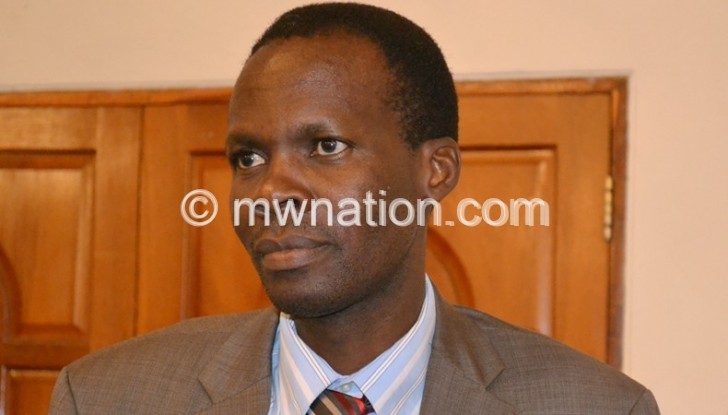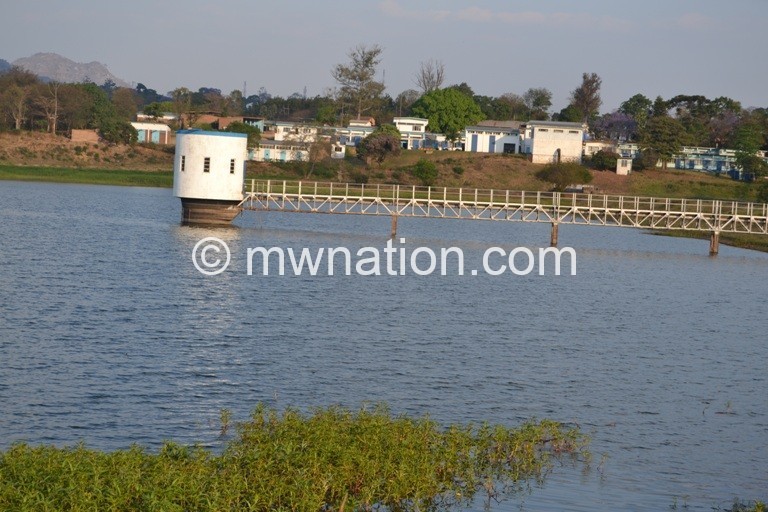State house blows k2.3bn in 3 months
State residences spent 42 percent of its K7.5 billion ($12,455,400) annual allocation within the first three months of the financial year, official records show.
The Current and Development Expenditure Report posted on Ministry of Finance website indicates that K2.3 billion ($3,819,670) was spent from July to September, translating into an over-expenditure of K500 million ($830,362) in one quarter alone.
Director of State Residences Peter Mukhitho attributed the over-expenditure to the depreciation of the local currency and local and international travels.
“What happened was that soon after the passing of the budget, the country experienced high inflation,” Mukhitho said in a telephone interview from the United Kingdom on Thursday.

Ironically, while government is planning to drastically reduce allocations to various sectors, Mukhitho said State Residences were underfunded and that they expect to get an upward review when Parliament meets for budget review in February next year.
“State Residences were only given K400 million for travels [but] soon after the budget was passed, government increased travel allowances. So inflation and increase in travel allowances stressed our budget,” he said.
Other big expenses, according to the Ministry of Finance report, are on Pensions and Gratuities at K81 billion from the budgeted K168 billion, representing 50 percent of the total allocation.
The Malawi Defence Force spent K5.4 billion out of its allocation of K18.6 billion, representing 42 percent while the Ministry of Lands, Housing and Urban Development spent K6.1 billion from its budget of K12.5 billion, representing 49 percent.
The ministry is expected to spend K7 billion from this budget for the Decent and Affordable Housing Subsidy Programme (Dahsp) for 15, 440 houses. However, the ministry told Parliament that as of September 5, it had delivered only 11 houses across the country.
On the other hand, the Office of the Vice President which was budgeted K1.4 billion had spent K490 million or 36 percent of its budget annual allocation.
The National Assembly had also spent K2.5 billion of the K8.3 billion, representing 30 percent of its total allocation for the year.
However, during the same period the Malawi Revenue Authority, government’s main revenue collecting body, had only managed to raise K140.5 billion.
Finance Ministry spokesperson Nations Msowoya said the deficit in funding was met through local borrowing and other non-tax revenue. He said the International Monetary Fund (IMF) programme allows government to borrow locally.
But in March this year, the IMF advised government to reduce the ratio of domestic debt to Gross Domestic Product (GDP) from 18 percent, a development that meant drastically reducing or stopping domestic borrowing. The country’s domestic debt stock stands at K415 billion which economic experts say is fuelling inflation currently hovering at 24.1 percent.
Msowoya also said government was getting some grants and loans for specific development projects financed by development partners.
He said government also gets revenue from a few parastatals.
The Minister of Finance Goodall Gondwe asked MRA to collect K592.4 billion tax revenues in the financial year 2015/16.
In July 2015, Gondwe presented to Parliament a K930 billion budget that was to be largely financed locally after donors withdrew their 40 percent direct budget support following the Cashgate expose in 2013 which revealed massive looting from public coffers by networks of civil servants and businesspersons.
In June this year, PricewaterhouseCoopers’ (PwC) findings also revealed that K577 billion shown in government banks statements between January 1, 2009 and December 31, 2014 could not be reconciled.
Msowoya said the country’s economic downward spiral forced government to reduce the K930 billion national budget presented in July 2015 because it could not support it.
He could not disclose by how much the budget would be reduced but said in the budget reduction exercise government was focusing on postponing some budget lines to align its expenditures with planned revenues.
Said Msowoya: “Treasury is working with ministries and departments to review their work plans so that we come up with a budget that is in line with anticipated revenues.
“The review of the budget is focusing on generic goods and services and our focus is on those expenditures which could be postponed to the next fiscal year.”
Commenting on the proposed budget cuts, a Malawian economist based in Mymnar, Daniel Msonda, said cutting the budget suddenly would cause a lot of shocks in the service delivery system and may lead to loss of goodwill by government.
‘‘Trimming the budget will most likely imply redirection of resources away from the intended targets, such as key departments and ministries that provide social services and safety nets for the poor,” Msonda observed.
“The already collapsing health sector will most likely be completely paralysed. The education sector will even be more dysfunctional, with inadequate teaching and learning materials, and unpaid teachers. With a potential El Nino weather looming, food shortages will be exacerbated. People will be looking up to government to provide food and emergency relief.’’
He said such cuts usually have little impact on the elite, saying government would need to be brave enough to cut spending on budget lines which, even when drastically pruned, will not make anyone jobless or lead to loss of lives in the villages.
On overspending, Msonda suggested that State House should drastically reduce local and international travels, and ‘‘all the fanfare that goes with such travels’’.
He also asked government to eliminate subsidies based on mere populism and cronyism, not economic productivity.
‘‘The money thus saved should be redirected towards health, education, and capital projects that will create jobs and spur growth,” he observed.
Msonda said there was a need to stop believing in the notion that borrowing for consumption from the future, and calling it GDP at present, is a somewhat valid way of sustainably growing the Malawi economy.
‘‘Our economics of borrowing has been creating a false sense of economic growth, which has largely distracted our economists from addressing the fundamental issues that would sustainably grow the economy,’’ Msonda said.






The minister of Misinformation told the public that parliament had overspent but from the information given above, it is the state house that has overspent! Why would Mukhitho give such lame excuses as reasons for over expenditure as if they were the only department affected by inflation? Come on my dear friend!
The graffiti artist took a plane load of his village folks to “clap” for him at the UN general assembly, blowing up the statehouse badget. Mxii!
Baboons at work!! What a God-forsaken country, Malawi is! Mukhito is busy splashing away hard-earned kwachas turned into pounds on friends and relatives back in the UK and he has the audacity to attribute over-expenditure on inflation! What a bunch of greedy people.